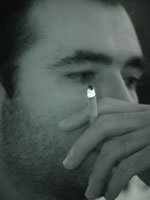Cancer evokes fear in many because we often see no warning signs. A person goes from apparently healthy to being diagnosed with cancer. And, all of us have heard stories of people with an incredibly short period of time between diagnosis and death.
Is cancer an inevitable diagnosis for some of us? Not necessarily. There are many steps you can take to decrease your risk of developing various types of cancer.
What Is Cancer?
Cancer starts when abnormal cells divide out of control and invade other, healthy body tissues. Normally our cells grow and divide then die when they become old and/or damaged. These cells are replaced with healthy new cells. When the DNA within our cells becomes damaged this process can go haywire and normal cell growth and division is disrupted leading to cancer.
Risk Factors
There are over 100 different types of cancer. The National Cancer Institute (NCI) has outlined the risk factors for many types of cancer on their website. In addition, NCI outlined overall risk factors for developing cancer. These include:
Age
The longer you live the likelihood of developing cancer increases.
Diet, Physical Inactivity, Alcohol Use, Overweight
Tobacco Use
Smoking, dipping, secondhand smoke, you name it, tobacco sucks. It makes you smell bad and look older too. Besides looking wrinkled with pursed lips, smokers have an increased risk of developing cancer of the lungs, larynx, mouth, esophagus, bladder, kidney, throat, stomach, pancreas, cervix and acute myeloid leukemia (cancer that starts in blood cells).
Sunlight Exposure
Have you ever walked into a tanning salon that carries signs saying their beds are UVB free? They may be UVB free but if they tan you, you are getting harmful rays. UVA rays, the kind that cause wrinkling and skin cancer. If you want a tan, use the spray on stuff or lotion and don't believe what the people working in a tanning booth tell you.
Ionizing Radiation
Ionizing radiation comes from radioactive fallout (from nuclear power plants or plants where they test the production and use of atomic weapons), radon gas, x-rays, and other sources.
People exposed to radioactive fall have an increased risk of leukemia and thyroid, breast, lung and stomach cancer. X-rays provide very low doses of radiation and the benefits of x-rays as a screening tool far outweigh the risks from radiation exposure.
Certain Chemicals And Other Substances
Some of these chemicals include asbestos, benzene, benzidine, cadmium, nickel, and vinyl chloride.
Some Viruses And Bacteria
Human Papillomaviruses (HPVs): Some strains of HPV cause cervical cancer and HPV may put you at risk for other types of cancer.
Hepatitis B And Hepatitis C: These can increase your risk of developing liver cancer.
Human T-cell Leukemia/Lymphoma Virus (HTLV-1): Increases a person's risk of lymphoma and leukemia.
Human Immunodeficiency Virus (HIV): HIV increases one's risk of certain types of cancer including lymphoma and the rare cancer Kaposi's sarcoma.
Mono (Epstein-Barr virus, EBV): Infection with mono has been linked to an increased risk of lymphoma.
Human Herpes Virus 8 (HHV8): This virus is considered a risk factor for Kaposi's sarcoma.
Helicobacter Pylori: The virus that causes stomach ulcers, H pylori, can increase your risk of developing stomach cancer and lymphoma in the stomach lining.
Family History
Cancer actually doesn't typically run in families. However, melanoma and cancers of the breast, ovary, prostate, and colon can run in families.
Bodybuilding Can Help Decrease Your Risk Of Developing Some Types Of Cancer
You can decrease your risk of developing many types of cancer by leading a healthy lifestyle and controlling environmental factors as much as possible. Luckily, as a bodybuilder, you are already following the recommendations from top scientific organizations for decreasing your risk of developing cancer:
Avoid Excess Alcohol Consumption
Drinking two or more drinks per day increases your risk of developing cancers of the mouth, throat, esophagus, larynx, liver, and breast. The risk increases with greater alcohol consumption and it also increases if you pair alcohol with cigarettes.
As a bodybuilder, if you drink, you drink either rarely or in extreme moderation. Drinking does not build the body of champions inside or outside. And if you smoke, start doing intervals. Soon you'll realize how much smoking impairs your lung capacity.
Maintain A Healthy Weight And Engage In Regular Physical Activity
Being overweight and being a couch potato both increase your risk for cancers of the breast, colon, esophagus, kidney, and uterus.
If you are a bodybuilder you have both of these areas covered. What you are doing to look fabulous on the outside and attract people of the opposite (or same if you prefer) sex, will also help you decrease your risk for some types of cancer.
Eat A Good Diet
Approximately 30-40% of all cancers are linked to one's diet. Experts recommend eating a diet high in fiber, whole-grains and antioxidant-rich fruits and vegetables for preventing cancer. Those who choose organic produce are decreasing their risk of ingesting unhealthy pesticides and herbicides. A few dietary don'ts:
- Avoid smelly or moldy foods (they may contain aflatoxin)
- Do not cook oils on high heat (240°F or above)
- Avoid cured, dried or preserved meats (like dark beer, they contain nitrosamines)
- Avoid burning or charring meat. If you do overcook it, cut those parts off and discard them.
- Avoid fried and charbroiled meats.
- Minimize your intake of smoked foods.
If you are a bodybuilder, you also very aware of your body and notice when something doesn't feel right. Keep in mind that having one or more risk factors doesn't mean you are doomed to a future cancer diagnosis. In fact, according to the NCI, most people who have risk factors will never develop cancer.
Additional Tips To Help Prevent Cancer
If you take a look at many of the viruses and bacteria listed above, you'll see that they are preventable. Her are some additional tips to help you prevent cancer:
- Don't share needles with anyone.
- Avoid unprotected sex (and no the pill doesn't protect you from disease). Is one night of spontaneous fun worth a lifetime of disease?
- Consider getting the vaccine that prevents Hepatitis B and see your doctor if you have stomach problems that won't go away (get tested for H pylori).
- If you are traveling to a foreign country, see CDC's website for the vaccines you need and additional tips on staying safe and healthy.
- If you think you have a family history of a certain type of cancer, talk to your physician for additional tips on prevention and screening.
Last, but not least, if you haven't listened to the "Last Lecture" of Professor Randy Pausch, Google it. It's a story not of cancer and death but of life and inspiration.
If you knew you only had a certain amount of time left on this earth, what would you do with it? How would you make the most of your time and what message would you want to leave for others? Dr. Pausch explored this in his widely circulated "Last Lecture" and inspired audiences worldwide.
References:
- National Cancer Institute. http://www.cancer.gov/cancertopics/
- American Institute of Cancer Research. www.aicr.org


